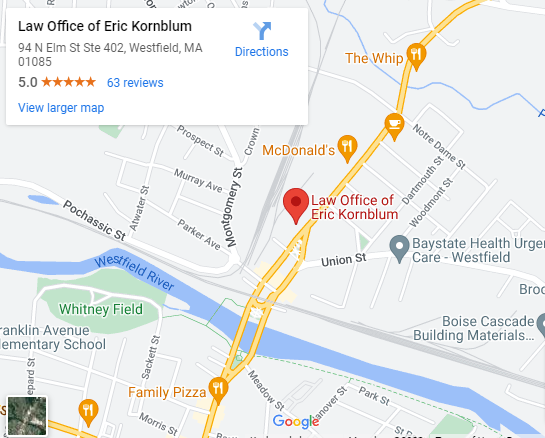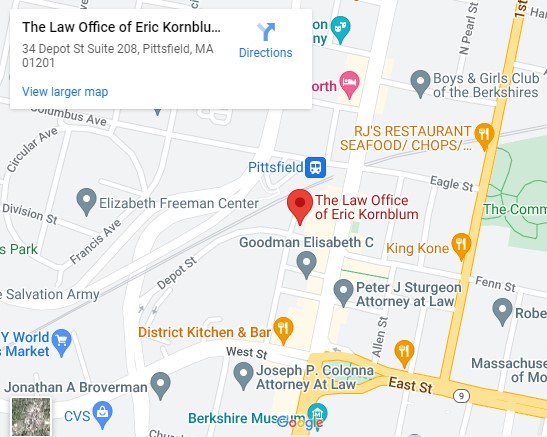Know the Secret to Keeping Your Retirement Funds in Bankruptcy
In today’s economic landscape in Massachusetts, unforeseen challenges can lead individuals to consider bankruptcy as a viable option. One crucial aspect that often concerns people contemplating bankruptcy is the fate of their retirement savings. If you are protecting retirement funds in bankruptcy, read on.
Quick Summary:
- In Massachusetts, economic challenges may lead to bankruptcy considerations. Protecting retirement funds is critical in these situations.
- Bankruptcy laws offer protection for retirement savings, but each case is unique. Experienced legal counsel is essential to navigate intricacies and secure financial stability.
- In Chapter 7, non-exempt assets may be liquidated. However, IRAs and 401(k) plans are often protected with specific exemption limits.
- Chapter 13 focuses on a structured repayment plan, preserving IRAs, 401(k) plans, and other retirement assets. That safeguards long-term financial security.
- Pension plans, 403(b) plans, profit-sharing plans, and defined benefit plans often enjoy protection in bankruptcy, subject to federal or state laws and plan specifics.
- When questioning the decision between withdrawal and bankruptcy, factors include the nature of debts, bankruptcy protection, and more.
While bankruptcy laws provide some protection for retirement savings, the differences of each case demand personalized attention. Let us explore the intricacies of handling retirement savings in bankruptcy and more.
Are My Retirement Savings Affected by Bankruptcy?
When facing bankruptcy, individuals often encounter two primary chapters—Chapter 7 and Chapter 13. In Chapter 7, non-exempt assets may be liquidated to satisfy creditors, but the good news is that certain retirement accounts are often considered exempt, offering a layer of protection.
On the other hand, Chapter 13 involves a structured repayment plan, allowing debtors to retain their assets, including retirement savings, while working towards financial stability. While there are laws protecting retirement funds in bankruptcy, the key lies in navigating the specifics of each case.
Will My Individual Retirement Account (IRA) Stay in Bankruptcy?
Understanding how IRAs are affected in Chapter 7 and Chapter 13 bankruptcy proceedings is essential.
Chapter 7
In Chapter 7 bankruptcy, IRAs are generally protected up to a specific limit. Federal bankruptcy law provides an exemption for IRAs, and in Massachusetts, this protection extends up to $1,512,350 per individual, adjusted periodically for inflation. In Chapter 7, your IRAs are often shielded from liquidation, preserving your retirement savings.
Chapter 13
IRAs are generally protected in Chapter 13, allowing individuals to maintain their retirement savings while addressing financial obligations.
This protection ensures that your IRAs remain intact and contribute to your long-term financial security throughout the Chapter 13 process.
Is My 401(k) Plan Safe in Bankruptcy?
The safety of your 401(k) plan in bankruptcy depends on the type of bankruptcy filing. Here’s an overview of how 401(k) plans are typically treated in each chapter:
Chapter 7
In Chapter 7, many retirement accounts, including 401(k) plans, are often protected. For federal bankruptcy law and state exemptions in Massachusetts, your 401(k) plan is shielded from liquidation up to an exemption limit, providing some protection for your retirement savings.
Chapter 13
401(k) plans are generally considered protected assets in Chapter 13 bankruptcy. Debtors can usually keep their 401(k) plans intact while working toward financial stability through the court-approved repayment plan.
Are There Other Retirement Plans I Have to Think About?
Several other retirement plans can be affected by bankruptcy in Massachusetts, and the level of impact varies based on the type of plan and the specific bankruptcy chapter.
- Pension Plans: Pension plans are often protected in bankruptcy. Federal law, particularly the Employee Retirement Income Security Act (ERISA), provides substantial safeguards for certain pension plans.
- 403(b) Plans: Similar to 401(k) plans, 403(b) plans commonly enjoy protection in bankruptcy. These plans, prevalent in the nonprofit sector, are often considered exempt property, safeguarding them from liquidation.
- Profit-Sharing Plans: Profit-sharing plans, including those under Internal Revenue Code Section 401(a), are generally protected in bankruptcy. The extent of protection may vary.
- Defined Benefit Plans: Defined benefit plans, which promise a specific benefit upon retirement, are often safeguarded in bankruptcy. Federal law provides significant protections to prevent their easy liquidation to satisfy creditors.
Remember that the level of protection can depend on various factors, including federal or state exemption laws, the specific details of the retirement plan, and the type of bankruptcy filed.
What Should I Choose Between Withdrawing My Savings or Filing for Bankruptcy?
Choosing between withdrawing your savings and filing for bankruptcy is a complex decision that depends on your financial situation and goals. Here are some factors to consider:
- Nature of Debts: Evaluate the types of debts you have. If your debts are primarily unsecured, such as credit card debt or medical bills, bankruptcy may be a viable option. On the other hand, if you have secured debts or debts with collateral, withdrawing retirement savings may not fully address those obligations.
- Bankruptcy Protection: Bankruptcy can provide legal protection and a structured process for addressing debts. It may allow you to eliminate or repay debts through a court-approved plan, providing a fresh financial start.
- Impact on Retirement: Withdrawing funds from your retirement savings can have long-term consequences, including potential tax implications, early withdrawal penalties, and a reduction in your future retirement income. Bankruptcy, if properly navigated, may allow you to protect a significant portion of your retirement savings.
- Bankruptcy Chapter: If you choose to pursue bankruptcy, consider whether Chapter 7 or Chapter 13 is more suitable for your situation. Each chapter has requirements, advantages, and implications for your assets, including retirement savings.
- Future Financial Stability: Consider the long-term impact on your financial stability. If handled properly, bankruptcy can provide a structured path toward financial recovery. Withdrawing retirement savings may provide immediate relief but could compromise your financial security in the long run.
Manage Your Bankruptcy With Our Attorneys’ Help!
Facing bankruptcy is undoubtedly a challenging time, and the fate of your retirement savings adds a layer of complexity. By enlisting the services of the Law Office of Eric Kornblum in Springfield, MA, you gain a legal partner dedicated to securing your financial future.
We ensure that you understand the implications of bankruptcy on your retirement savings. Protecting your retirement funds in bankruptcy will be a breeze with our help.
Take the first step toward financial recovery by consulting with our experienced bankruptcy attorneys to guide you through bankruptcy diligently. Schedule a conversation with us today!

 MA bankruptcy lawyer Eric Kornblum graduated from State University of New York, Binghamton in 1989 and received his law degree in 1992 at Western New England College, School of Law. Since opening his own practice, Eric has been dedicated to helping his clients resolve their financial problems both in and out of court.
MA bankruptcy lawyer Eric Kornblum graduated from State University of New York, Binghamton in 1989 and received his law degree in 1992 at Western New England College, School of Law. Since opening his own practice, Eric has been dedicated to helping his clients resolve their financial problems both in and out of court. 
